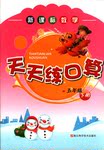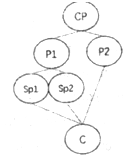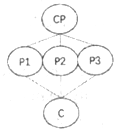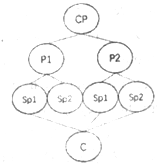题目内容
【题目】任务型阅读
How to Study Smarter, Not Harder
Here are some of our favorite tips that will help any student study smarter, not harder:
Recite As You Study
Recitingsaying things out loud—should first take place as you read through each paragraph or section.Test yourself.This will help you to understand as well as learn faster because it is more active than reading or listening.It will also help you to notice your mistakes and the topics you have trouble understanding.
Study the Middle
The best time to review is soon after you've learned something.You are more likely to remember the material at the beginning and the end of the lesson, so make sure you focus on the middle when you review.
Take Fuller Notes
Notes should be in your own words, brief and clear.They should be tidy and easy to read.Writing notes will help you better than just underlining as you read, since it forces you to rewrite ideas in your own words.
Sleep on it
Study before going to bed, unless you are very tired.It's easier to remember material you've just learned after sleeping than after an equal period of daytime activity, because your brain continues to think even after you've fallen asleep.
Combing Memory and Understanding
There are two ways to remember:by memorizing and by understanding.Multiplication tables, telephone numbers, and math formulas are better learned by rote(死记硬背)while ideas are best learned by understanding.
The more ways you have to think about an idea, the more meaning it will have:the more meaningful the learning, the better you can remember it.Pay attention to similarities in ideas and concepts and then try to understand how they fit in with thing you already know.Never be satisfied with anything less than a completely clear understanding of what you are reading.If you are not able to follow the thought, go back to the place where you first got confused and try again.
Titles: Tips on ________in a smarter way

【1】____________________________
【2】____________________________
【3】____________________________
【4】____________________________
【5】____________________________
【6】____________________________
【7】____________________________
【8】____________________________
【9】____________________________
【10】___________________________
【答案】
【1】study
【2】Reciting
【3】active
【4】Requirements
【5】underlining
【6】memory
【7】Combination
【8】ways
【9】Identifying/Noticing/Relating /Recognizing
【10】confusion
【解析】
本文是说明文,介绍了几点帮助学生们聪明有效学习的方法。
【1】考查对文章的理解和名词。根据标题和开头句子How to Study Smarter, Not Harder Here are some of our favorite tips that will help any student study smarter, not harder可知本文是关于怎样更聪明有效的学习。句中study是关键词,故填study.
【2】考查对文章的理解和动词。根据文章第一部分标题Recite As You Study和内容Reciting saying things out loud—should first take place as you read through each paragraph or section.可知本部分介绍大声背诵的重要性。句中Reciting是关键词,故填Reciting.
【3】考查对文章的理解和形容词。根据第一部分Recite As You Study中 This will help you to understand as well as learn faster because it is more active than reading or listening.可知朗诵能够使你更快地学习和理解,以更积极的方式学习。句中active是关键词,故填active.
【4】考查对文章的理解和名词。根据Take Fuller Notes中Notes should be in your own words, brief and clear. They should be tidy and easy to read.可知简短明确,整洁易于阅读是对笔记的要求。故填Requirements.
【5】考查对文章的理解和动词。根据Take Fuller Notes中Writing notes will help you better than just underlining as you read可知做笔记比阅读时加下划线效果更好。句中underlining是关键词,故填underlining.
【6】考查对文章的理解和名词。根据Sleep on it中Study before going to bed, unless you are very tired. It's easier to remember material you've just learned after sleeping than after an equal period of daytime activity可知睡前学习比白天效率更高,句中easier to remember是关键词,故填memory.
【7】考查对文章的理解和名词。根据Combing Memory and Understanding可知建议我们把记忆和理解结合,更有助于学习。根据Combing故填名词Combination.
【8】考查对文章的理解和名词。根据最后一段The more ways you have to think about an idea, the more meaning it will have:the more meaningful the learning, the better you can remember it.可知建议我们用尽可能多的方式来思考问题。根据The more ways故填ways.
【9】考查对文章的理解和动词。根据最后一段Pay attention to similarities in ideas and concepts可知要注意思想和概念上的相似之处,作为标题与considering并列用-ing形式,根据Pay attention to故填Identifying/Noticing/Relating /Recognizing.
【10】考查对文章的理解和名词。根据最后一句If you are not able to follow the thought, go back to the place where you first got confused and try again.可知建议我们不能理解就回到最初困惑的地方重新尝试。根据where you first got confused可知是困惑之处,故填confusion.

 天天练口算系列答案
天天练口算系列答案








